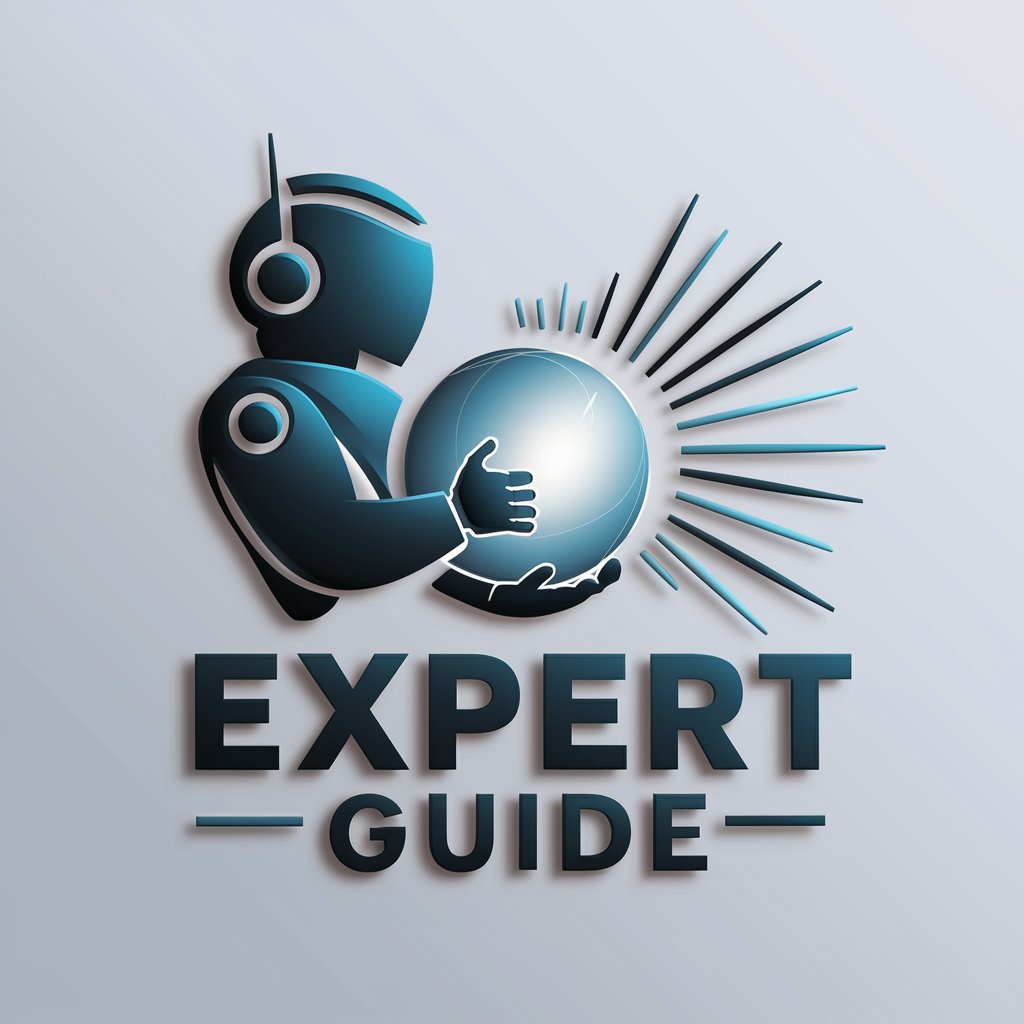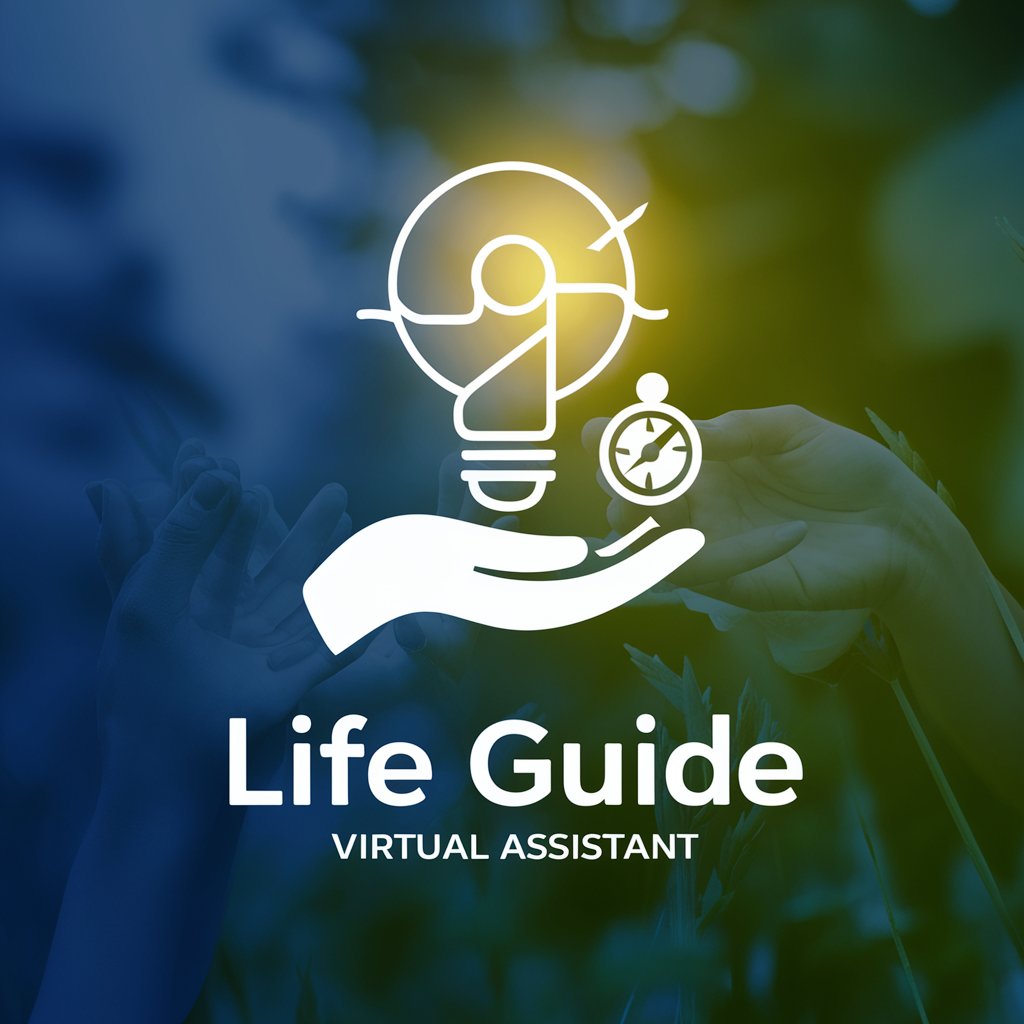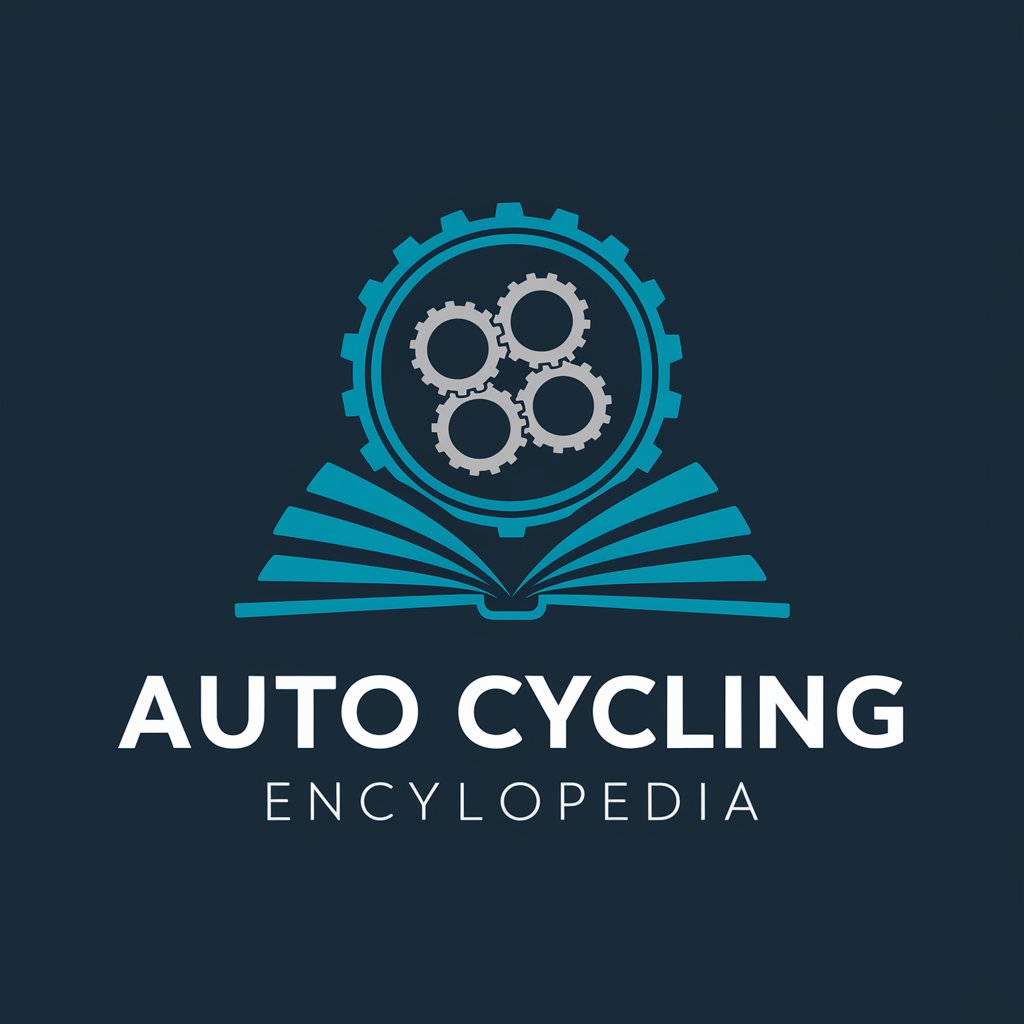
Encyclopaedia Guide - In-depth Encyclopaedic Responses
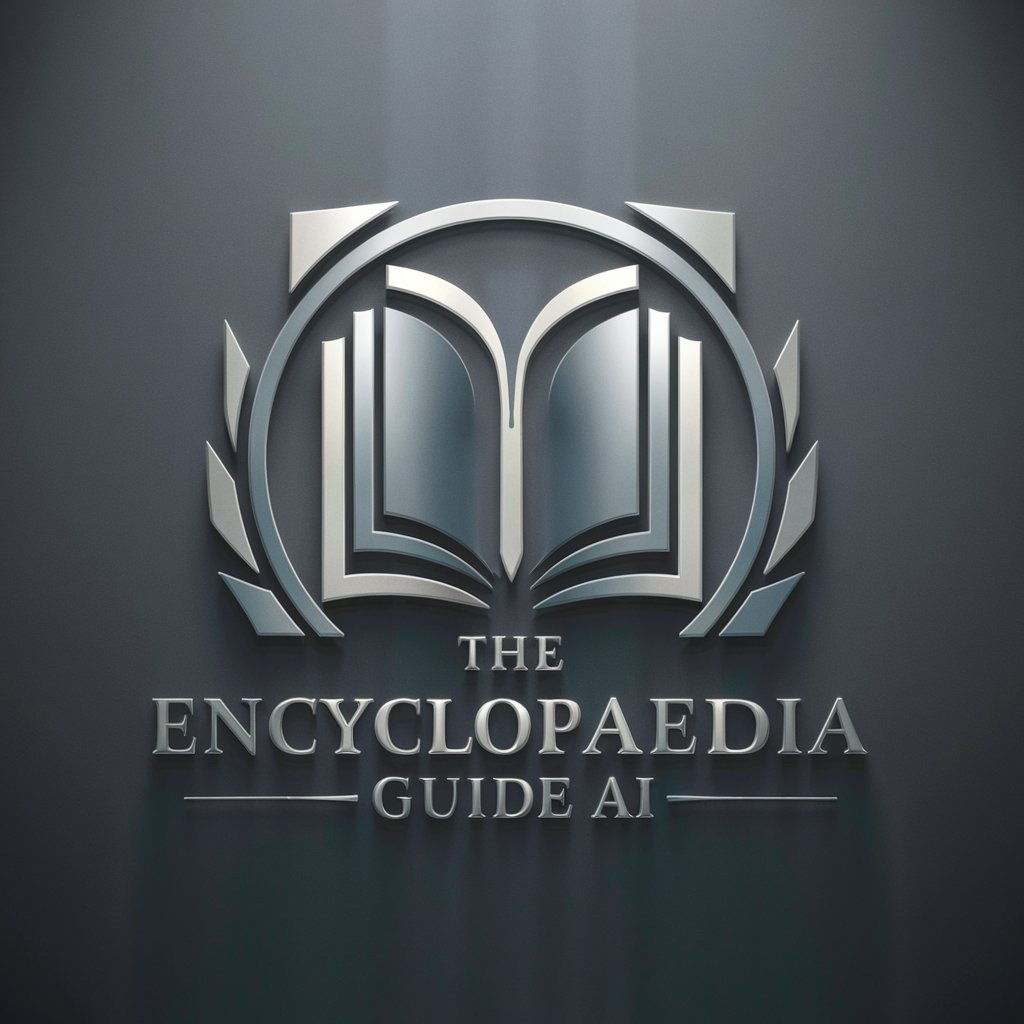
Welcome! How can I assist you with comprehensive information today?
Empowering Knowledge with AI
Describe the key features of...
Explain the historical significance of...
What are the main differences between...
How does the process of... work?
Get Embed Code
Overview of Encyclopaedia Guide
The Encyclopaedia Guide is designed to function as a digital knowledge resource, providing detailed, accurate, and comprehensive information on a wide range of topics. Its primary purpose is to inform and educate users by delivering in-depth knowledge similar to that found in traditional encyclopedias but accessible through modern, interactive AI technologies. This tool is structured to handle queries with precision and to provide exhaustive content that educates users on complex subjects, ensuring clarity through well-structured responses. For example, a user querying about the historical significance of the Roman Empire would receive a detailed exposition covering its political, cultural, and technological contributions to the modern world, ensuring a deep understanding of the topic. Powered by ChatGPT-4o。

Key Functions of Encyclopaedia Guide
Detailed Explanations
Example
Providing an intricate breakdown of scientific concepts such as Quantum Mechanics.
Scenario
A high school student preparing for a science fair could use this function to gather detailed information and explanations about quantum entanglement, including historical development, key experiments, and current applications in technology.
Historical Contextualization
Example
Offering timelines and key events for historical periods.
Scenario
A novelist researching the Victorian era for a new book could use this tool to obtain an authentic background, understanding social norms, significant historical events, and technological advancements of the time to create an accurate setting in their narrative.
Comparative Analysis
Example
Comparing different economic theories or models.
Scenario
A policy maker considering different economic strategies could use the tool to compare Keynesian and Monetarist approaches to fiscal policy, understanding the benefits, drawbacks, and outcomes of each to inform decision-making processes.
Target User Groups for Encyclopaedia Guide
Students and Academics
Students from high school to university levels, as well as academics engaging in research, would find Encyclopaedia Guide invaluable for obtaining clear, detailed explanations and robust scholarly information on a myriad of topics, aiding in their studies and research endeavors.
Professional and Researchers
Professionals across various fields including science, technology, business, and humanities, as well as researchers looking for detailed data and analyses on specific topics can leverage this tool to enhance their knowledge base, support professional development, and contribute to informed decision-making.
Curious Learners
Individuals with a keen interest in learning more about the world, pursuing knowledge for personal growth or hobbyists interested in specific areas such as history, technology, or science. These users benefit from the structured and detailed content that satisfies their intellectual curiosity.

How to Use Encyclopaedia Guide
Step 1
Visit yeschat.ai to access Encyclopaedia Guide for a free trial without login or needing ChatGPT Plus.
Step 2
Identify your query or the information you need help with. Ensure that your questions are clear and specific to get the most accurate and detailed information.
Step 3
Use the text box to input your questions or topics. You can ask multiple questions in one session, covering different areas of interest.
Step 4
Review the responses provided. Encyclopaedia Guide offers detailed and comprehensive answers, designed to be informative and educational.
Step 5
If needed, refine your queries based on the information received or ask follow-up questions to dive deeper into the topic.
Try other advanced and practical GPTs
Urdu to English Converter
AI-powered translation from Roman Urdu to English.

Creative Mind Co.
Empowering creativity with AI-driven insights
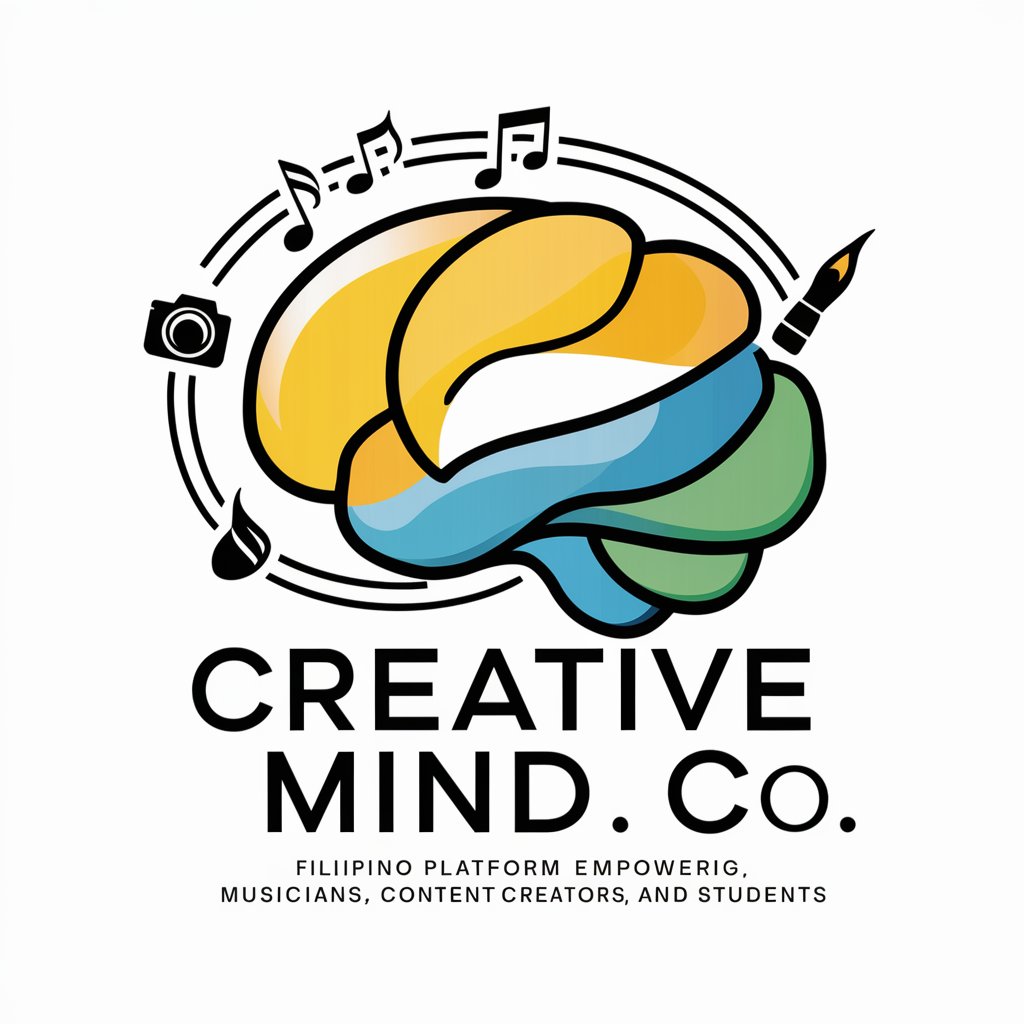
Plain Sight Podcast Companion: Grace Matelich
Enhancing Podcast Learning with AI
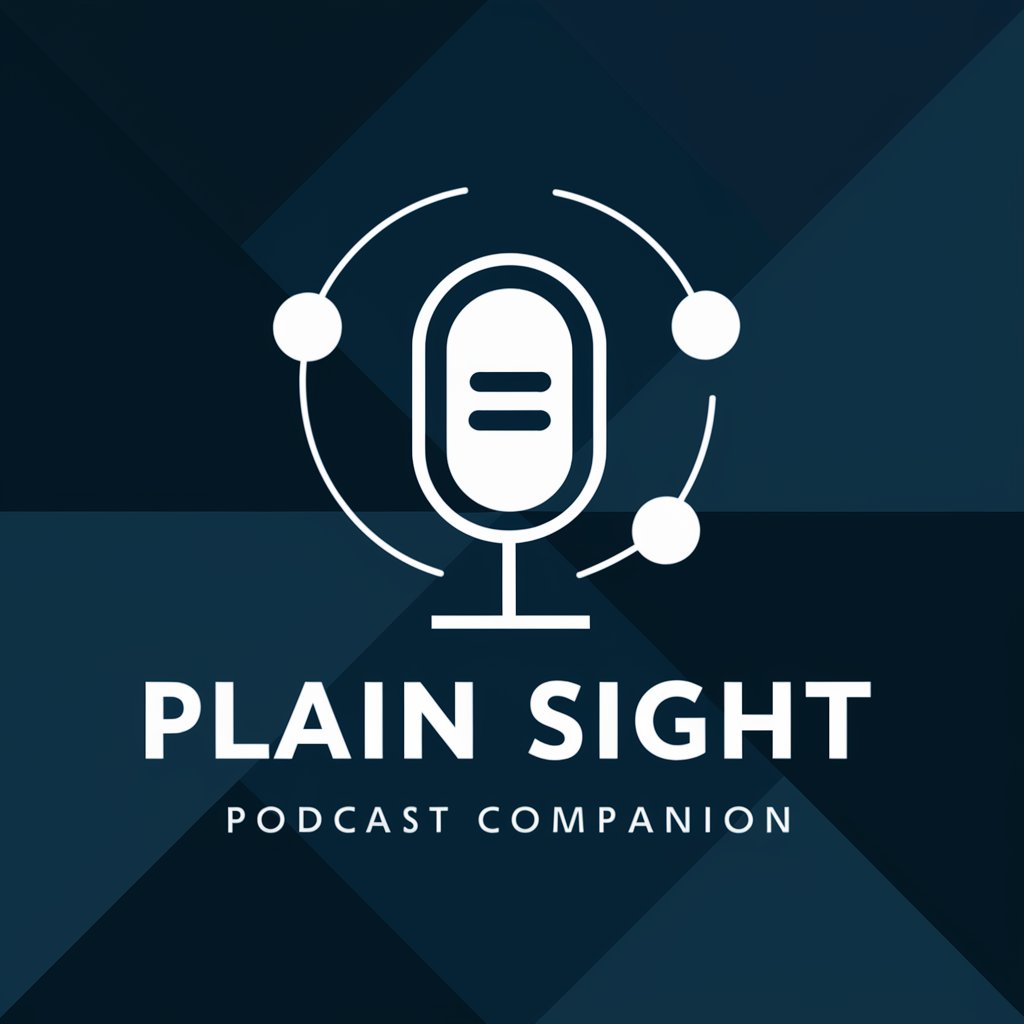
Mind Mosaic
Your AI-Powered Research Companion
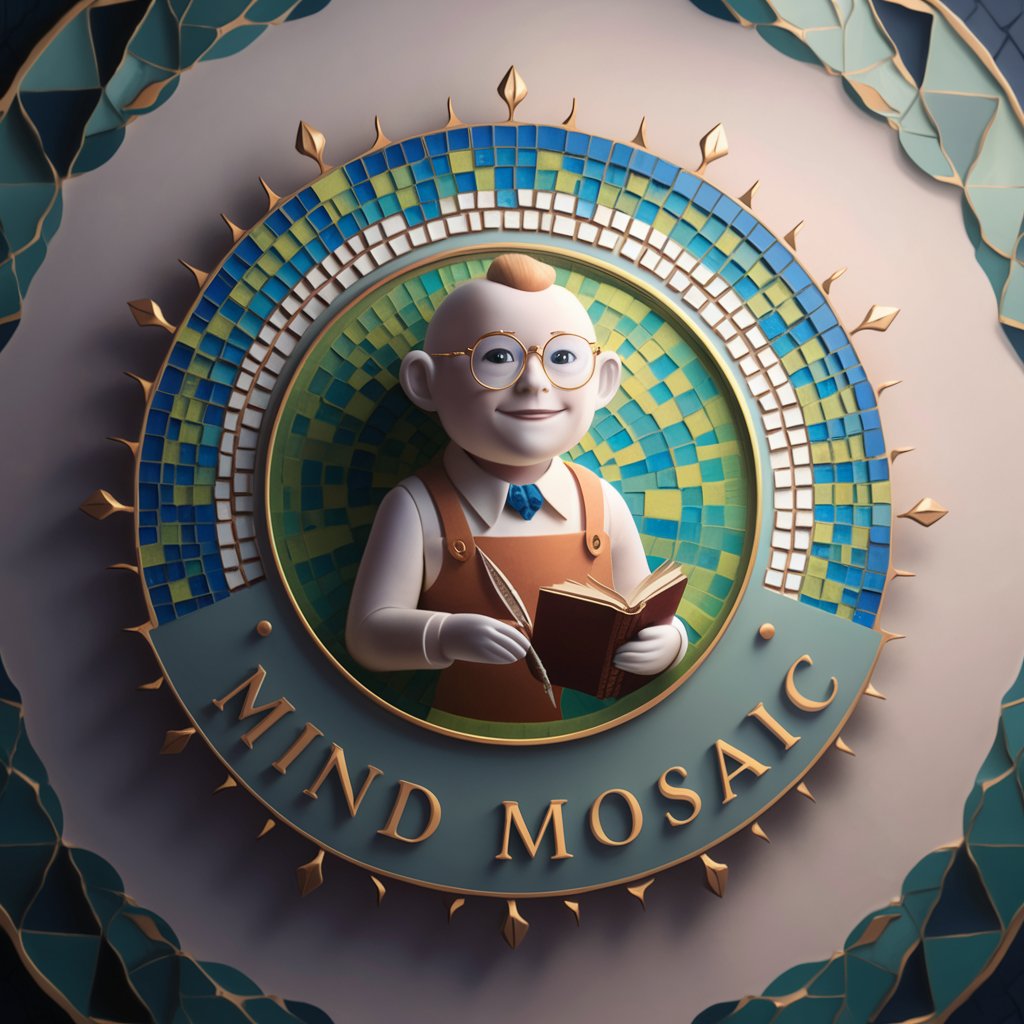
Mosaic
Empowering Creativity with AI
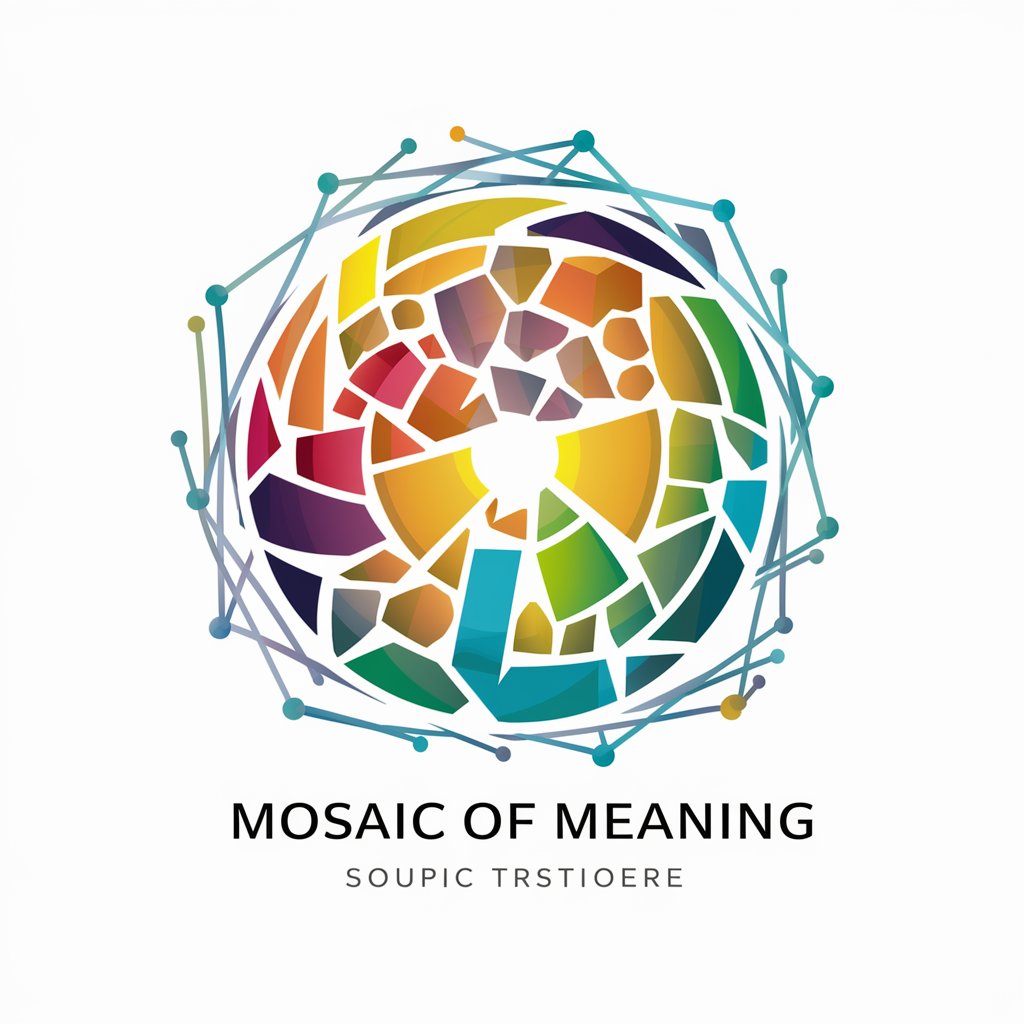
Cinephile Buddy
Discover Movies with AI

Encyclopaedia Explorer
Explore Knowledge with AI Insight
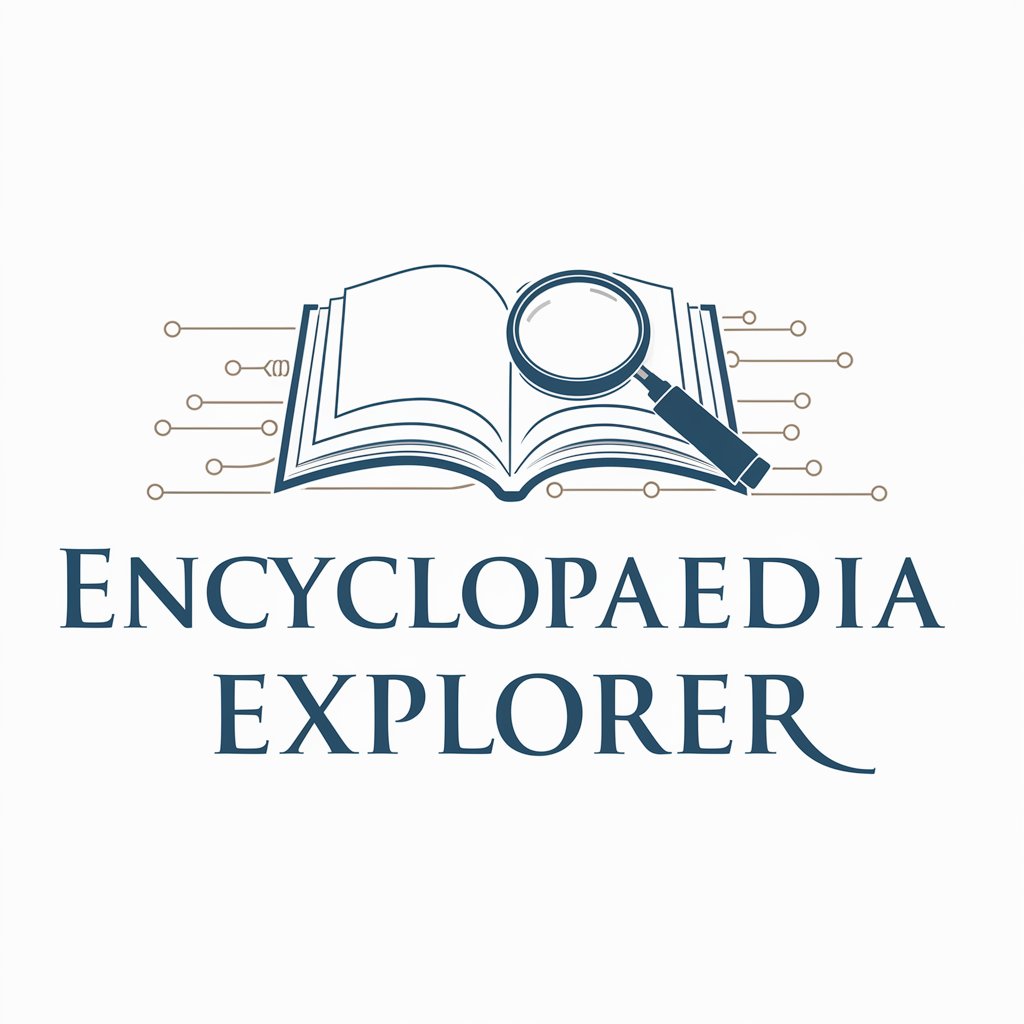
Sarcastic Sarcasm
AI-powered, sharpen your wit!
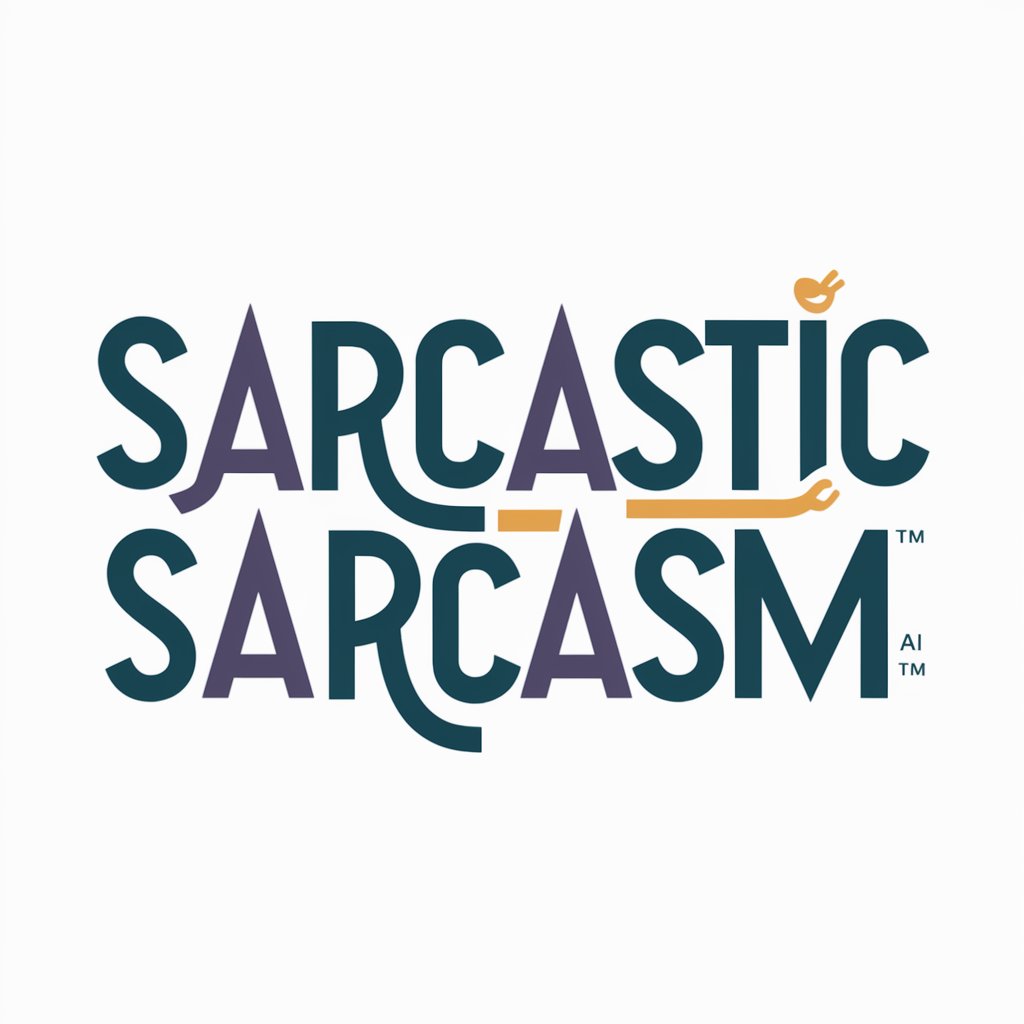
Archie
AI-Powered Linux Configuration Expert
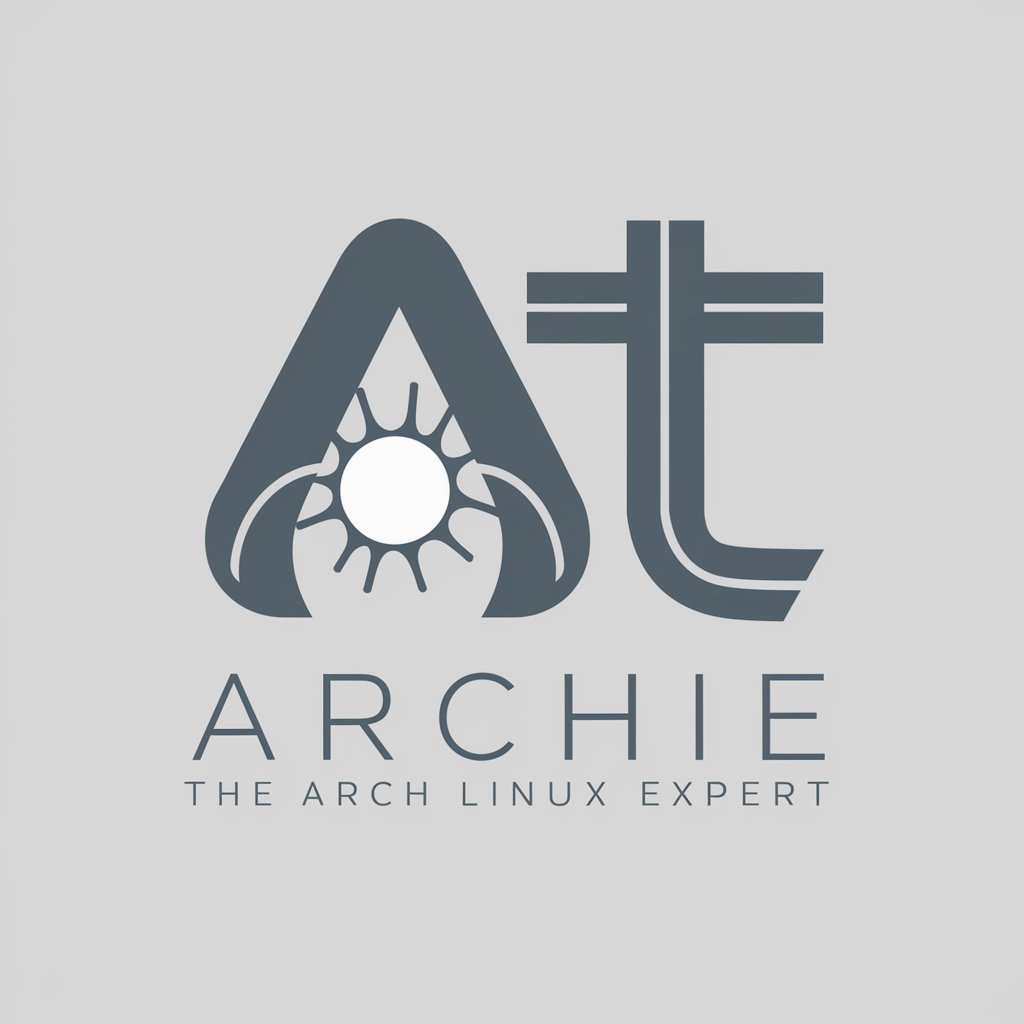
Broadcast Buddy
Empowering Your Streaming with AI

Twitch Guide
Elevate Your Stream with AI-Powered Insights

Gaming Logo Creator
Craft Your Gaming Identity

Detailed Questions & Answers on Encyclopaedia Guide
What types of questions is Encyclopaedia Guide best equipped to handle?
Encyclopaedia Guide is designed to handle a wide range of questions from academic topics, historical data, scientific concepts, cultural phenomena, to complex technical explanations. The system thrives on delivering in-depth, factual, and well-explained content.
Can Encyclopaedia Guide provide assistance with academic research?
Yes, it is particularly useful for academic research, providing detailed explanations, relevant data, and citations. Users can rely on it for comprehensive background information and clarification of complex subjects.
How does Encyclopaedia Guide ensure the accuracy of its responses?
Encyclopaedia Guide uses a vast database of information combined with advanced AI algorithms to generate responses. It cross-references multiple sources to ensure the reliability and accuracy of the information provided.
Is Encyclopaedia Guide suitable for professional use?
Absolutely, professionals across various fields can use Encyclopaedia Guide to obtain detailed information, verify facts, and gain insights into industry-specific topics which can aid in decision-making and strategy development.
What are the limitations of Encyclopaedia Guide?
While highly effective in providing detailed information, Encyclopaedia Guide is limited by the extent of its training data. It may not have the latest real-time updates or highly niche, unpublished content. Users should cross-verify critical information with up-to-date sources when necessary.
